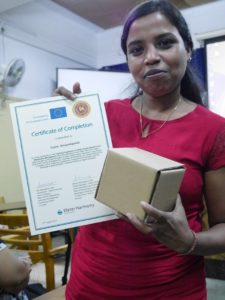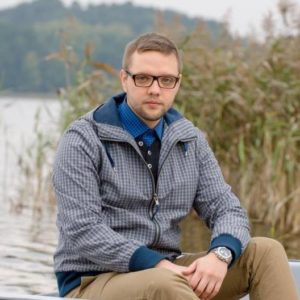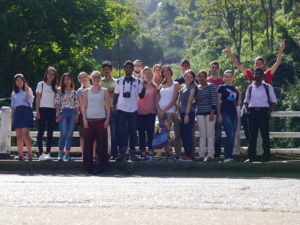20 students from 10 partner universities of China, Germany, Norway, Poland, Sri Lanka and Ukraine have attended intensive course on Water Supply System and Water Management at the University of Peradeniya (Sri Lanka), 24th July – 13th August 2016, organized through Water Harmony ERASMUS+ project.
Lectures, seminar, excursions and labs were well prepared and well structured. The best way to prove it is to to share with you a short cuts from student feedbacks. Here you are.
Anna Busch, Master Student of Ostwestfalen-Lippe University of Applied Sciences, Hoexter (Germany)
“We were welcomed with hospitality at the UoP, the staff was always helping, if we needed something and we felt very comfortable at all times. The dynamic was different compared to lectures at our University with students just from one nationality. The social networking between the students was a bit reserved at the beginning, but became better and better after time. We all needed our time to adjust ourselves to the different climate and environment. After a while, we got closer to each other and became friends. I think at the beginning, the new environment and speaking in a foreign language was difficult, but most of us could overcome our obstacles. Due to the different levels of English skills for some students it was more difficult to understand and express themselves”.
 Lojana Kanapathipillai, University of Jaffna (Sri Lanka)
Lojana Kanapathipillai, University of Jaffna (Sri Lanka)
“The first field visit was arranged to study the water supply head works. In order to examine how the head work is operated to distribute the water for different purposes, we have visited to Victoria Dam which is one of the biggest Dams in Sri Lanka. Victoria Dam is double arch Dam that manages the pressure and other acting forces in well mannered.
Then, we were gone to the Randenigala Dam which is an example for rock fill Dam with the Central Clay core. We observed downstream and upstream faces along with the power generation plant. It also had a typical spillway which is operated by manual systems.
The next field visit was organized to check the water quality at the Kandy Lake and to identify the issues that lead to the current scenario of the lake today. The students were divided into different groups in order to find some suggestion to improve the water quality in the lake. Especially, the groups were allocated to identify the issues of water quality, demonstrate sediment management, ensure on site water quality improvement, study the wastewater management strategies for hotels around and evaluate socio-economic impacts”.
Maciej Piejdak, The University of Warmia and Mazury in Olsztyn  (Poland)
(Poland)
“Time spent on this course was very important to me, he gave me a new look to the world and its problems, and the method of implementation activities. We felt both as guests but mostly as students who came here to expand their knowledge (theoretical and practical) as well as to exchange experiences from their countries.
I hope that in the future, more students will be able to participate in this type of activities”.



